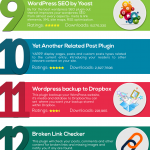10 Essential Steps to Mastering Salesforce Administration: A Comprehensive Guide for Aspiring Professionals
The role of a Salesforce Administrator is crucial in optimizing the performance of organizations that leverage the Salesforce CRM platform. These professionals act as a conduit between the company’s business requirements and the technological capabilities of the platform, ensuring it is customized to improve business processes. Their primary duties encompass system configuration, generating reports and dashboards, upholding data accuracy, and overseeing security protocols.
Obtaining certification is a significant achievement for those aspiring to become Salesforce Administrators. It signifies a deep understanding of the platform and a dedication to the field, which can open doors to enhanced career opportunities, increased earning potential, and professional growth.
The educational journey to becoming proficient in Salesforce involves understanding a broad spectrum of features, from basic setup to more sophisticated functionalities. Salesforce offers a wealth of resources such as detailed documentation, online tutorials, and a supportive community to facilitate learning. Engaging in practical exercises is vital to gaining hands-on experience and developing expertise in the platform.
Before delving into the ten essential steps to become a successful Salesforce Administrator, it’s important to highlight the significance of comprehensive Salesforce training. For those looking to kickstart or enhance their career in this field, enrolling in a reputable Salesforce training program is a crucial step. In particular, opting for Salesforce training in Noida can provide you with the necessary skills and knowledge to excel in the Salesforce ecosystem. These training programs are designed to cover a wide range of topics, from basic CRM concepts to advanced administrative functions, ensuring that you are well-prepared to tackle the challenges of a Salesforce Administrator role.
To excel as a Salesforce Administrator, consider the following ten steps:
- Grasp Business Operations: Understanding the business processes you’re supporting is essential. Get to know the different departments, their workflows, and how they use Salesforce. This will enable you to customize the CRM to meet specific requirements, enhancing its value and efficiency within the organization. Dive deeper into the nuances of each department’s operations, identifying key performance indicators and critical success factors. By doing so, you can tailor Salesforce features such as record types, page layouts, and validation rules to align with their unique needs. Engage with stakeholders to gather feedback and continuously refine the system, ensuring it evolves with the changing demands of the business. This proactive approach not only optimizes the CRM’s functionality but also fosters a sense of ownership among users, leading to higher adoption rates and more effective utilization of Salesforce as a tool for driving organizational success.
- Learn Salesforce Basics: Begin with a strong foundation in Salesforce fundamentals. Familiarize yourself with standard objects, data management, security settings, and user roles. This basic knowledge is crucial for creating complex solutions and resolving issues. Use resources like Salesforce Trailhead to learn these core concepts and stay updated with new features and best practices. Additionally, explore various customization options such as custom fields, validation rules, and page layouts to tailor the platform to specific business needs. Engage in interactive forums and discussion groups to share insights and learn from the experiences of other Salesforce professionals. By continuously expanding your understanding and staying abreast of the latest developments, you’ll be well-equipped to leverage the full potential of Salesforce in your organization.
- Hone Problem-Solving Abilities: As an administrator, you’ll encounter challenges that need innovative solutions. Develop your problem-solving skills by addressing real-world situations and thinking critically about how to solve them within Salesforce. This requires both technical expertise and the ability to understand user needs and translate them into effective solutions.
- Improve Communication and Collaboration: Clear communication is vital in this role. You’ll need to work with various stakeholders, from end-users to senior management, to comprehend their needs and explain complex concepts in an understandable way. Strengthening your interpersonal skills will help you establish relationships and encourage a collaborative environment.
- Keep Up with Salesforce Ecosystem: Salesforce is continuously evolving, with regular releases of new features and updates. Stay informed about the latest developments in the Salesforce ecosystem by participating in community events, webinars, and online forums to share knowledge and learn from others’ experiences in the field.
- Acquire Hands-On Experience: Practical experience is invaluable for a Salesforce Administrator. Get involved in hands-on projects, whether in a sandbox environment or by volunteering for nonprofit organizations. This allows you to apply theoretical knowledge to real-life situations, deepening your understanding and enhancing your problem-solving abilities.
- Prioritize User Adoption and Training: A successful Salesforce Administrator ensures high user adoption rates by providing thorough training and support. Create user-friendly guides, conduct training sessions, and offer ongoing support to help users confidently navigate the system. Your efforts in education and support directly contribute to the overall success of the Salesforce implementation.
- Focus on Data Management and Quality: Data is the foundation of any CRM system. Concentrate on maintaining data integrity by implementing best practices for data entry, validation, and cleanup. Regularly audit your data to ensure accuracy and completeness, and educate users on the importance of data quality for reliable reporting and decision-making.
- Develop Customization and Automation Skills: Learn to customize Salesforce to meet specific business needs by creating custom fields, objects, and workflows. Automation is a powerful tool in Salesforce, so mastering process builder and flow can significantly enhance productivity and efficiency within the organization.
- Prepare for Certification and Continuous Learning: Earning a Salesforce Administrator certification validates your skills and knowledge, making you more marketable in the job market. Continuously seek opportunities for learning and professional development to stay current with Salesforce trends and best practices, ensuring you remain a valuable asset to any organization.
In conclusion, embarking on a journey to become a successful Salesforce Administrator requires a blend of understanding business operations, mastering Salesforce fundamentals, and continually developing your problem-solving and technical skills. By following these ten essential steps and staying committed to continuous learning and improvement, you can effectively tailor the Salesforce platform to meet the unique needs of your organization, driving efficiency and success. Remember, the key to excelling in this role lies in your ability to adapt, innovate, and collaborate, ensuring that you remain a valuable asset to any team and stay ahead in the dynamic world of Salesforce administration.
Cover Image by Freepik

















